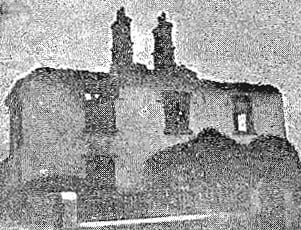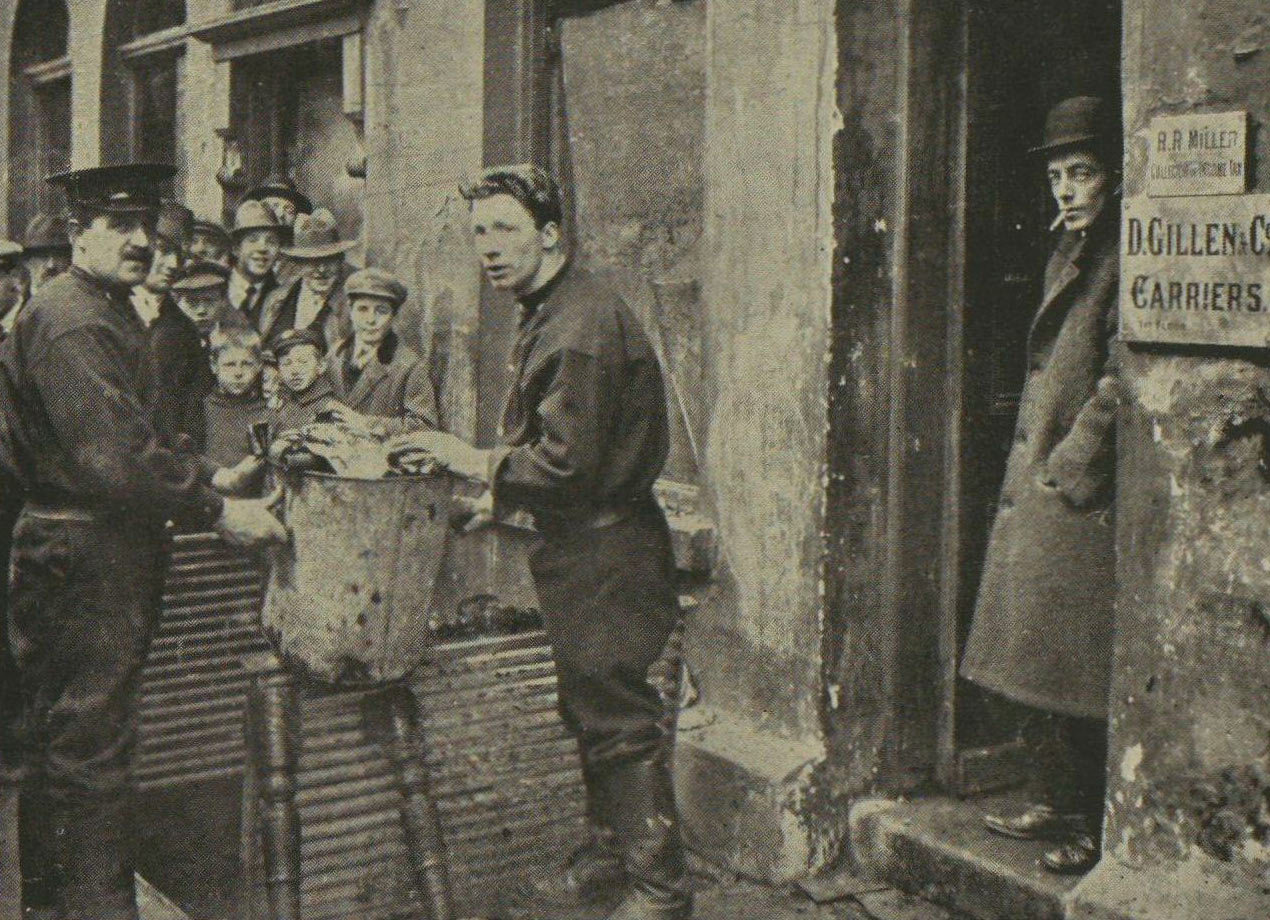218 police barracks and 21 tax offices burned in Easter weekend attacks
Belfast, 7 April 1920 - The Easter holiday weekend did not witness another rising, as some had predicted, but it did see a wave of attacks on police barracks throughout the country.
A total of 218 barracks and huts were damaged or destroyed. Most of the attacks took place in Clare, Cork, Limerick and Meath, but the campaign of burnings and bombings extended to 27 counties.
One estimate suggests that almost 15% of all Royal Irish Constabulary (RIC) barracks were targeted.
Most of the barracks were vacant when they were attacked. In two stations in Co. Roscommon, RIC men left when directed to do so by the assailants. The Irish Independent reported that great care appears to have been taken to ensure the safety of families of RIC – in some instances, the paper reports, raiders saw to it that the families were provided with temporary accommodation.
In addition to the barracks attacks, telegraph and telephone wires were cut in many places.

The burned out shell of the barracks in Caherdavin, Co. Limerick, which was attacked over Easter weekend (Image: Freeman's Journal, 7 April 1920)
There were also attacks on approximately 21 Inland Revenue Offices where documents were burned.
Among the Inland Revenue offices targeted were those on Ann Street and North Street in Belfast, where fires were also started in the Custom House and in government offices in the Grand Central Hotel.
The unionist Belfast Newsletter has branded the widespread incendiarism witnessed throughout the country as ‘disgraceful’.
[Editor's note: This is an article from Century Ireland, a fortnightly online newspaper, written from the perspective of a journalist 100 years ago, based on news reports of the time.]





















